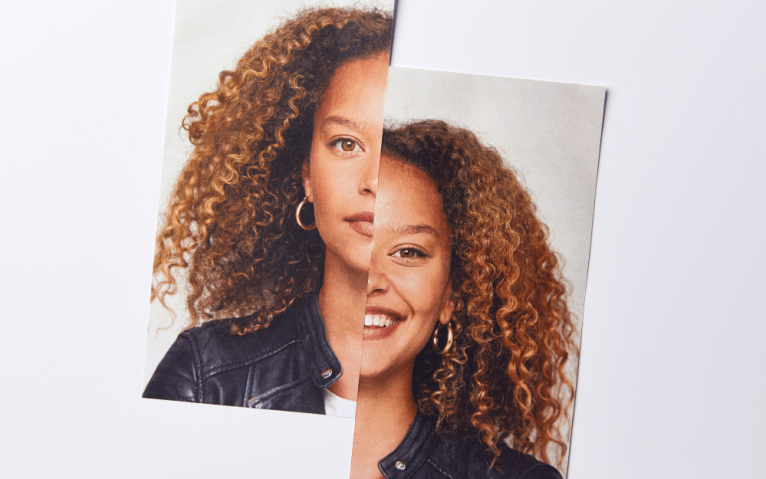Many individuals struggling with a substance use disorder are also diagnosed with a mental illness, and vice versa. The connection between mental health and addiction is impossible to ignore. Although this connection affects everyone, researchers believe that adolescents are more likely to struggle with mental health and addiction disorders simultaneously. Unfortunately, there’s not enough research among youth to understand why this happens.
Understanding Dual Diagnosis
Someone with dual diagnoses has both mental and substance use disorder. Estimates say that about 1 in 4 adults with a mental illness also struggles with a substance abuse disorder. Unfortunately, only 12 percent of the 4 million American adults who suffered from a Dual Diagnosis received treatment for both conditions.
Over 9 million people in the United States live with a co-occurring disease, yet only 7.5 percent of people enroll in treatment programs. Mental health disorders are the most common cause of disability, with at least 1 in 17 Americans struggling with at least one disorder.
Which One Comes First: Substance Abuse and Mental Health
Since mental health problems and addiction are so closely connected, people with addiction try to blame one or another. While it’s true that abusing specific substances can lead to psychotic reactions, the same can be said about a mental illness that leads to self-0medication.
It’s impossible to pinpoint which one comes first as, in most cases, both issues feed each other. Those with mental illness often develop an addiction to prescription medications. At the same time, those with an addiction to drugs like methamphetamine can eventually struggle with mental illness after prolonged use. Nonetheless, the connection between the two makes it difficult to treat.
The Rise of Comorbidity in Dual Diagnosis Patients
Data shows a significantly high rate of substance use disorders and anxiety disorders, including generalized anxiety disorder, panic disorder, and post-traumatic stress disorder. Substance use disorders also co-occur at high prevalence with mental illnesses, such as depression and bipolar disorder, ADHD, borderline personality disorder, and antisocial personality disorder.
Patients with schizophrenia also have higher rates of alcohol, tobacco, and drug use disorders. Around 1 in 4 individuals with a severe mental illness also have an addiction. Research indicates that 43 percent of SUD treatment people for nonmedical use of prescription painkillers have a diagnosis or symptoms of mental health disorders, particularly depression and anxiety.
Also, there’s a significant effect that occurs when individuals are younger. For example, both drug use and mental health disorders during childhood or adolescence increase later risk if both conditions. Some studies point out the increased risk for substance use disorders in young people with untreated ADHD. Another study found that adolescent-onset bipolar disorder confers a greater risk of subsequent substance use disorder than adult-onset bipolar disorder.
How to Recognize a Dual Diagnosis
To receive an official dual diagnosis, you must be evaluated by a mental health professional or an addiction specialist. However, you don’t have to be a professional to recognize some of the signs and symptoms someone struggles with co-occurring disorders.
Signs of Addiction
- Struggling to keep up with school or work
- Lying or stealing to continue an addictive behavior
- Attempting to quit drugs or alcohol but relapsing repeatedly
- Expressing feelings of regret or shame about compulsive behavior
- Experiencing withdrawal symptoms when trying to quit a harmful substance
- Changing friends or family members for different activities or new crowds
Symptoms of Mental Illness
- Experiencing delusions or hallucinations
- Expressing feelings of despair, hopelessness, and worthlessness for two weeks or more
- Feeling compelled to follow elaborate rituals and maintain high standards to relieve anxiety
- Struggling to hold a job or friendships due to behavioral issues or drastic mood swings
- Using drugs, alcohol, or other compulsive behaviors to manage or cope with stress
- Withdrawing from others, refusing support from friends and family members
[interact id=”5f986d25eead9e0014b9f313″ type=”quiz” w=”1080″]
How Treatment is Different
For individuals suffering from dual diagnosis disorders, appropriate and comprehensive treatment is vital. Providing help for individuals struggling with dual diagnosis disorders starts with understanding the link between mental health issues and addiction.
What is Integrated Treatment?
These comprehensive rehabilitation programs offer medical, therapeutic, and holistic treatments to heal physically, emotionally, mentally, and spiritually. Living with co-occurring disorders can be life-threatening. Integrated care is one of the most recommended approaches to treat dual diagnosis disorders, regardless of the co-occurring combination.
While specific services will vary upon each person’s needs, integrated treatment facilities offer a range of treatment services to the individual, providing the person with everything necessary to heal on all levels.
Beyond treating each condition individually, these programs also promote lifestyle changes that promote health and wellness, including:
- Improving sleep habits
- Working on communication skills
- Improving eating habits and nutritional behaviors
- Working on family relationships
- Addressing work-related issues and improving job skills
- Managing any legal issues
By addressing these issues while also receiving effective treatment for their conditions, patients have a better chance of returning to work, rebuilding relationships, and building a strong support network that helps them maintain long-term recovery.
Dual Diagnosis Treatment Center Near Me
The right treatment center can help people navigate their dual diagnosis. It’s paramount to find a dual diagnosis treatment center in Florida that follows a unique and individualized approach to treatment. Both addiction and mental illness are incredibly unique conditions that affect people differently; a cookie-cutter treatment plant won’t cut it.
Lighthouse Recovery Institute is touted as one of Florida’s best dual diagnosis treatment centers for its unique approach to treatment. From the first assessment, our team of addiction specialists and psychotherapists draft a comprehensive plan that adapts to your needs, and it’s built to be readjusted whenever needed as you make progress throughout the treatment.
If you or someone you know is struggling with a dual diagnosis, we encourage you to call us today to learn more about our treatment programs and how you can start walking toward recovery.









